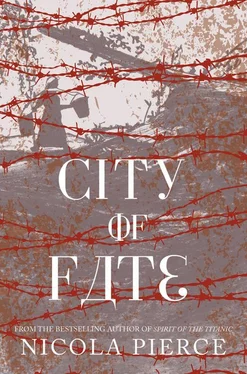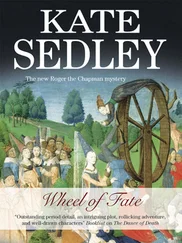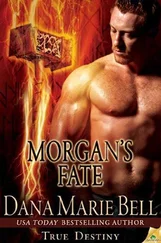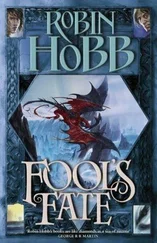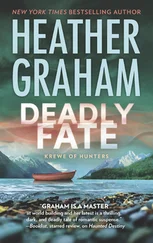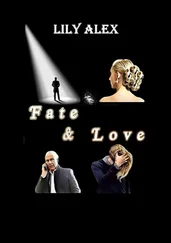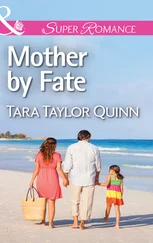With his front door closed and his devoted wife as his only listener, Mr Belov had felt free to say what he wanted, as long as he spoke quietly, just in case, ‘Maria Chuykov’s grandson is dead.’
Mrs Belov had led him to his old armchair where his slippers had been waiting to be substituted for his shoes, and had murmured, ‘Yes, I know. I heard. Poor Maria.’
Her husband had watched her carefully as she’d fussed about. ‘Do you know what happened?’ he asked her.
At that, she’d turned away from him, saying, ‘How can I know when his family doesn’t? They received a brief note, in the post, from someone who didn’t even sign his full name.’
Mr Belov had kicked off his shoes. ‘You know what that means, don’t you?’
His wife had sat down heavily on the stool beside him. ‘It means that I’m glad we never had children’.
Mr Belov had shifted impatiently and stared at her until she’d given in, nodding her head sadly, and sighing, ‘Yes, alright. I know. It means that we’re killing our own.’
At ten minutes to four he gathered what was left of the class and they headed outside. Relatives stood around in anxious groups, their eyes following the teacher, making him feel that they blamed him for what was happening. At his insistence, his wife had stayed at home as he’d wanted to be free to concentrate on the boys. He’d promised to be back before tomorrow afternoon at the very latest.
Vlad’s parents stood apart from the others. His father was ashamed that he’d been certified as being too old to help defend the Motherland. Vlad felt awkward. He knew his father felt useless, but it wasn’t something they could ever talk about. His mother handed him a paper bag containing two hardboiled eggs and four slices of her homemade bread.
Both his mother and father knew their son had to go to war, since theirs was the only family in their street who had yet to contribute somebody to the war. Even Mrs Bychok, the widow, who had no sons to give to the army, saw her two daughters off to work as nurses in distant hospitals – a fact that she spoke about loudly and frequently.
Fortunately Vlad did not see himself as some sort of family sacrifice. There was no choice, in any case. If the authorities had ever found it necessary to raise their eyebrows and question the Chevola family’s loyalty to their country, it would mean certain trouble, and not just for Vlad and his parents, but also for his grandparents, uncles, aunts and cousins. Every single Chevola would be infected with the hint of suspected treason, and that was all that was needed – just the smallest, tiniest hint. These days, to be suspected of not loving the state more than yourself and family was as good as being guilty of something quite dreadful, and completely unforgiveable. Punishment meant exile to the gulag labour camps, where prisoners – traitors – worked hard with little food until the day they died. Meanwhile, their families would forever be known for having spawned an ‘Enemy of the State’ and would live under constant scrutiny with the ever present threat of being arrested themselves.
Anton Vasiliev towered over his tearful mother, making sure to keep some distance from her, in case she tried to hug him in front of everyone. He had no problem seeing himself as a man and, accordingly, imitated his father’s roughness, ‘Will you stop crying, woman! You’re embarrassing me. People will think you’ve no faith in me as a soldier.’
He caught Vlad looking at him and, over the rather impressive sound of his mother blowing her nose, rolled his eyes as if to say, man to man, ‘Do you see what I have to deal with!’
Vlad smiled, in spite of himself, and even wished he could be like Anton. He was eager for his parents to go, but, at the same time, dreaded saying goodbye to them, because he might give himself away and show how scared he was. Peering at the younger children, the boys and girls who were too young for any army, he wished madly to be nine again. When he and his classmates walked away from here, those lucky kids could return to their game of football, or chasing, or whatever they normally did at four o’clock on a sunny Wednesday afternoon.
He glanced over again at Anton and his mother; both were now engaged in a furious discussion over Anton’s refusal to take the small statue of her favourite saint, to keep him safe from all harm.
‘I can’t take that with me. Do you want to get me in trouble?’
Mrs Vasiliev held the statue to her chest, too miserable to lower her voice. ‘But, my dear, it’s allowed now. Stalin has said we can pray again and go back to church.’
Nevertheless Anton was adamant; he was simply not prepared to risk anything that might affect his otherwise blatant patriotism. In fact, his mother was right; Russia’s tempestuous leader had recently relaxed his rules forbidding his people from practising religion, recognising that happier citizens might, in the short term at least, make better soldiers. Then again, maybe Anton was, accidentally, the wiser one since Stalin was known to change his mind over things like this, tripping up people who couldn’t be expected to keep up with the hundreds of rules. What might be allowed one day would invariably be a crime the following day and there was no room for such reasonable explanations as: I didn’t realise, I’m so sorry, or it was a mistake.
The roaring silence and awkwardness of his parents made Vlad desperate to say something, even something he had already said, ‘Of course, I’ll write whenever I can.’ His voice didn’t sound like his.
‘You mightn’t have much time for that’ was his mother’s unfeeling reply while her husband stared off into space. The casual observer might have recognised that the parents wished to say a lot more but just couldn’t, for fear of upsetting each other in front of their son.
And then, finally, time had run out for anything more. Mr Belov was calling for his students to get in line behind him. They were going to do this properly, to march off smartly in pairs and, hopefully, make their relatives proud.
Feeling guilty and confused to discover he was relieved to be saying goodbye, Vlad gave his mother a quick, light hug and faced his father, trying to think of some decent words and then settling for stating the obvious fact, ‘I have to go now.’
The tension in his father’s face was dreadful. Vlad had a sudden urge to giggle; he was tongue-tied, swearing that his tongue was exactly that, tied up in a knot of panic. So distracted was he, by his own nervousness, he could not see how distressed they were.
‘Look after yourself, Vlad.’ His father spoke at last, and, just as Vlad stepped away, he added, ‘I’m sorry I can’t go with you.’
Having no idea what to say to this, Vlad pretended not to hear him.
The noise was tremendous. Everyone started shouting at once, dogs barked furiously, as if calling out their own frantic goodbyes, and babies began to wail, no doubt picking up on the sadness and fear in the air about them. With so much going on, Vlad felt safe to turn and smile painfully at his parents, to show them he was perfectly alright.
A couple of women were obliged to hold up Mrs Vasiliev, who sobbed louder than any baby. In one or two instances, Mr Belov had to gently tug a boy out of the arms of his mother and grandmother. The letter had stated that the class had to register at 8pm sharp, and that ‘tardiness will not be tolerated’ – whatever that meant.
The teacher casually inspected the line of boys, counting twenty-five when there should have been thirty. ‘Is that everybody?’ he asked the onlookers, vaguely hoping that someone would say ‘No, wait a minute, here come the Chekhov twins’, or whoever else was missing. Instead, he was met with a sulky silence, the only answer he was going to get. For a moment, he wondered if he should say something, give a short speech about courage and patriotism, but then he reasoned to himself, how could he, when he felt neither the least bit brave nor the least bit patriotic?
Читать дальше
